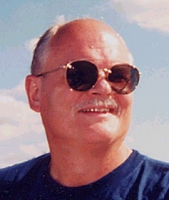Most nonprofit outfits are exempt from paying property taxes, but with budget crises at the city, county and schools, Peoria could use assistance from those nonprofits able to help.
Contributing to city or county services would make a positive difference beyond nonprofits’ good works. So local government should ask OSF Health Systems and other medical centers, Bradley University and other colleges, and Exposition Gardens (the Heart of Illinois Fair) and other organizations beyond such “meds and eds” for voluntary contributions to make up for revenue shortfalls at the county and city levels.
After all, many nonprofits own considerable real estate for which they pay no taxes, and – as any other individual or corporate citizen – they benefit from the services those taxes underwrite. So nonprofits that voluntarily help defray county or city expenses would take steps toward balancing the relationship.
Nonprofits would argue that they’re exempt from taxes because they offer services that governments don’t, spend money locally, employ local residents, encourage civic engagement, help attract people to the area, and assist the community’s needs.
But does all their good work merit the price – what taxpayers sacrifice?
For instance, the value of Peoria County’s taxable assessment is $3.7 billion (a third of its approximate fair market value), according to county and state records. The city’s taxable assessment is $1,865,012,970; the county’s outside of the city of Peoria is $1,884,061,221. Nonprofit parcels aren’t regularly assessed, so an exact figure of tax revenue not collected is hard to determine. However, as a comparison, tax-exempt properties in St. Louis account for 17% of all property (about $3 billion out of $18 billion). So if Peoria-based nonprofits hold a similar share – say, 10% — that’s $370 million in assessed valuation, county-wide.
Even proposing the idea may seem ridiculous or politically risky, but it’s happening elsewhere, and a former Peoria County Board member suggests it’s not outlandish.
“Let your conscience be your guide,” says Jack Bradley, a Republican County Board member in the 1990s. “If a nonprofit is in the community, and the community is staggering and needs a boost, you should put something in to the city and county you call home.”
The concept – “Payment In Lieu Of Taxes (PILOT) – isn’t new, nationwide. There are PILOT programs across the country where officials note that nonprofits are property-tax exempt despite having operating budgets comparable to big, for-profit companies. Federally owned land usually makes payments to local governments affected by the loss of tax revenues. Detroit gets $5 million from groups that got tax breaks for building low-income housing. The Port Authority of New York & New Jersey makes payments to New York City. The Massachusetts Port Authority, universities and hospitals are some of the sources for about $30 million in PILOT funds given to the city of Boston. Indianapolis receives $4 million in similar payments. And in Illinois, state universities routinely make voluntary, negotiated payments to communities where they own vast tracts of acreage exempt from taxation.
In St. Louis, a PILOT program could raise $5 million, according to a study by the PFM Group, funded by the Missouri Council for a Better Economy.
Taxpayers already underwrite hotels, retailers and other private projects through incentives, tax-increment financing and other schemes. Is it out of line to ask nonprofits to share taxpayers’ costs of maintaining the community? Maybe some of the 600-plus Peoria nonprofits listed by the GuideStar nonprofit information source are barely breaking even or are broke themselves. Whether the Boy Scouts or the YMCA, hundreds of stable social-service groups and even churches, they all still need cops and other public services. Further, some nonprofits are financially healthy. The Illinois Financial Authority in 2007 issued $460 million in bonds to support’s OSF’s Milestone Project; Bradley University’s “Renaissance” expansion including a recreation center, parking deck and 4,200-seat arena has generated most of its $150 million price tag; Methodist Medical Center postponed its $400 million renovation but went ahead with a $30 million construction project; Expo Gardens was once offered $4 million for its 80 acres on Northmoor, according to Jack Bradley.
Those who don’t share in the costs of services that benefit them are called “free riders” in organized labor: people who don’t pay dues but enjoy the wages, hours and working conditions others fund. Likewise, church volunteers help clean or teach Sunday school, and who would refuse to help a neighbor fighting a house fire?
Since health care generates sizable revenues, consider physicians’ modern Hippocratic Oath, which includes the line, “I will remember that I remain a member of society, with special obligations to all my fellow human beings, those sound of mind and body as well as the infirm.”
In the city and county of Peoria, some gain from services they don’t help pay for; some needs are unmet without voluntary assistance; the community is suffering the financial equivalent of a fire; local society needs more of its members to lend a hand.
To ease nonprofits’ offers to help, maybe local government leaders could suggest arrangements for organizations to target their giving. Perhaps the University of Illinois School of Medicine could underwrite the Peoria Animal Welfare Shelter (PAWS), Proctor Community Hospital and its allied groups could donate money for Sheriff’s programs; Bradley could be responsible for streets and lighting near its 85-acre campus and security throughout its greater West Bluff neighborhood; the Catholic Diocese of Peoria could make generous grants to Townships’ General Assistance programs; the W.D. Boyce Council of the Boy Scouts could take on recycling costs throughout rural Peoria County.
Nonprofits, from hospitals and private schools to civic/service groups and even churches should consider it: Peoria needs more Good Samaritans.
Bill Knight is a Peoria journalist who teaches at Western Illinois University. Contact him at bill.knight@hotmail.com.

